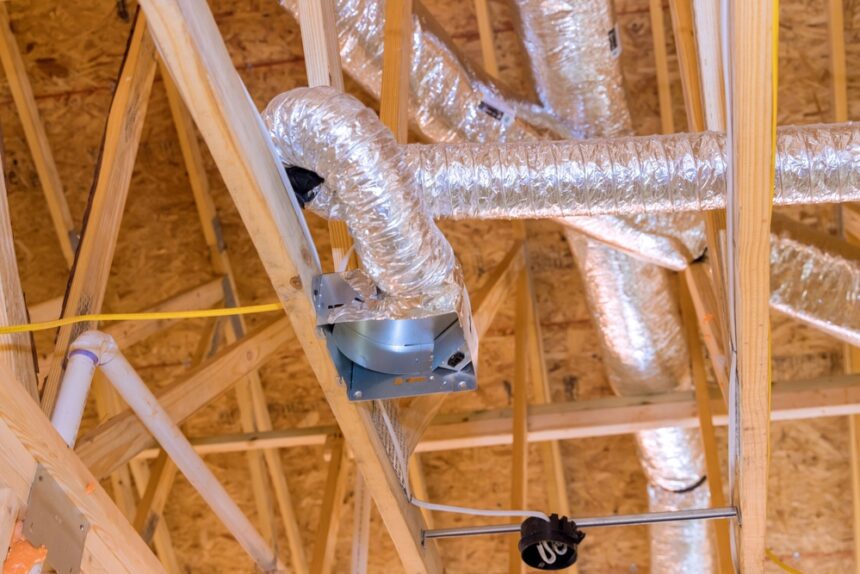Even the best heating system can’t keep up if your home isn’t properly insulated. Without protection against the cold, your furnace ends up fighting a losing battle, and you pay the price.
Heat escapes through walls, floors, and attics through a natural process. Insulation slows this process down. Here, an expert in HVAC repair in Clifton, CO, shows how insulation can help your system run more efficiently and smarter.
The Real Cost of Letting Heat Escape
Poor insulation drains your wallet whenever warm air leaks out of your home. This causes your heating to work overtime, leading to higher utility bills and faster wear on components like the blower motor and heat exchanger.
A heating services technician explains, “Without insulation, even the most advanced furnace or heating system can’t do its job efficiently.”
How Does Insulation Help with Heat?
Insulation works by slowing the transfer of heat. This keeps the warmth your system produces inside your home where it belongs. Instead of heating the air just for it to seep outdoors, proper insulation helps maintain steady temperatures with less effort.
If you want to boost insulation, focus on:
- Attics and crawl spaces
- Exterior walls
- Basement walls and rim joists
- Windows and doors with weatherstripping
Insulation’s Impact on System Longevity
A well-insulated home is a warm home. When it comes to longevity, insulation also plays a role in protecting your heating system from unnecessary stress.
Every time your furnace cycles on, it wears a little more. Insulation reduces heating cycles, extending the life of your system and avoiding premature breakdowns.
If your heater seems constantly active, that’s a red flag. It could be working harder because your home’s insulation isn’t holding up.
Hidden Gaps That Leak Your Heat Away
Many insulation gaps are easy to miss. Even tiny cracks and spaces around windows, electrical outlets, and duct joints can let warm air leak out. Finding these hidden culprits can be key to maximizing comfort and savings.
Here’s how to identify potential problem spots:
- Feel for cold drafts around doors and windows.
- Check for uneven room temperatures.
- Inspect attics and basements for thin or missing insulation.
Sealing these gaps with caulk or spray foam can make a noticeable difference.
Strange HVAC Noises? Insulation Might Be the Cause
It’s normal for HVAC systems to produce an audible hum that blends into your surroundings the more accustomed you become to it. If your HVAC system rattles, whistles, or bangs, however, it’s another story.
These sounds may suggest that ducts are expanding and contracting due to uneven temperatures caused by poor insulation. When you pick up on any of these, look at your insulation first before blaming your furnace.
Sometimes, you won’t have to resort to investing in a heating replacement. Instead, fixing the home’s envelope may quiet the system and restore efficiency.
Insulation vs. Climate Change: Your Home’s Role
Did you know that better insulation also helps the planet? By reducing energy consumption, you’re directly cutting greenhouse gas emissions from power plants. Homes with improved insulation leave a smaller carbon footprint.
If you’re eco-conscious, upgrading insulation is one of the most effective ways to live greener. Less energy use, lower bills, and fewer repairs mean a win for both your home and the environment.
The Smart Home Edge: Connecting Insulation and Technology
If you want to know what peak heating performance looks like, look no further than the combination of smart thermostats and sensors. When your home is sealed properly, smart devices can regulate temperatures with precision, keeping every room comfortable without constant heating.
Consider smart upgrades like:
- Thermostats that adapt to your schedule
- Insulation monitors that detect moisture or heat loss
- Zoning systems for targeted heating
These tools create a smarter, more responsive home that saves energy and money.
Busting Insulation and HVAC Myths
Let’s clear up some common misunderstandings:
- More insulation isn’t always better; over-insulating can cause moisture issues.
- HVAC systems aren’t just winter concerns; insulation helps with cooling, too.
- New furnaces alone don’t guarantee savings if insulation is still poor.
Understanding the balance between your home’s structure and its heating system is key to smart energy use.
Insulation and HVAC performance go hand in hand, and one should not be given more importance over the other. If your home isn’t staying warm despite constant heating, partner with an HVAC professional to find out whether insulation is the last piece missing to have a warmer home.


